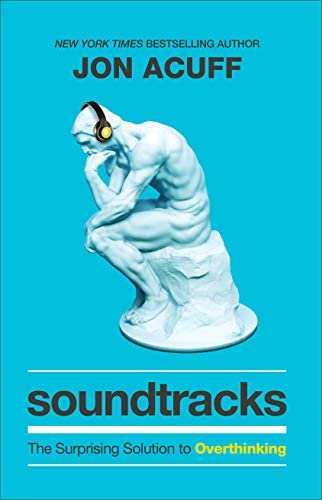LEARN A LITTLE:


Getting Up Early in the Morning
There’s research evidence that if you begin a talk or presentation with a question and hold the answer to the end, your audience will be more attentive because you have primed their curiosity pump. I thought I would try that technique with a blog. If one question is good three should be a lot better.
Here goes:
- Is there a day when mattresses are not on sale?
- Why do we wash bath towels? Aren’t we clean when we use them? If not, then what was the purpose of the bath?
- Why is it that inside every older person there is a younger person wondering what the heck happened.*
Onto the blog.
This isn’t a question, but I wonder how many people reading this blog have ever made a coal fire in a home furnace with paper or cardboard, some kindling wood, topped off with coal and ignited with a wooden match.
That’s how I developed what has been a lifelong habit of getting up early in the morning—4:00 a.m. As it turns out that 4:00 a.m. corresponded with the time my dad had to leave for work in the morning. It was also about the same time that the house had become cold overnight since the previous day’s fire had reduced itself to embers.
The fringe benefit was that I began to drink coffee in 7th grade and learned that I could do my homework assignments before going off to school. Ever since that time, I guess you could call me a morning person.
As it turns out, there are a number of benefits to waking and getting up early, many of which are scientifically supported:
- Those who wake up early tend to be more positive and optimistic.
- Waking up early helps regulate cortisol levels.
- Early risers tend to be more productive.
- Getting up early will allow for a period of meditation or reflection.
- Early risers have better concentration skills.
- By getting up early, you have the opportunity to get more things done in the day.
- Early risers have more energy.
The early bird really does get the worm.
I trust the above list of benefits will encourage late risers to give it a try, especially those who are continually late to work.
Here’s a workable approach: Start where you are. For example, if you currently get up at 7:30, get up at 7:15 or 7:00 a.m. for a few days or a week and then increase your rising time by a similar interval until you get to your target rising time, let’s say 6:00 a.m.
It may not be easy or quick, but you will have gained another one and a half hours each day. That’s a lot over a week and 30 hours over a month.
Just so you know, this isn’t written from the perspective of wanting to add more workaholics to the workforce. It is, however meant to be helpful to those desiring to get more done in the day.
Here are some things to keep in mind:
- Go to bed at a reasonable time and don’t cheat yourself out of needed sleep time. Eat healthy and don’t drink alcohol before going to bed. Finally, invest in a decent and comfortable bed.
- If you are already having a hard time falling asleep or regularly wake up for extended periods of time during the night, you may need to address that concern before realizing the total benefit of early rising.
Here’s a positive affirmation to help you make the transition. “A yard is hard, but inch by inch everything is a cinch.”
*Thanks to Bruce Wagman Hirsch for sending me these questions. Unfortunately, he didn’t share the answers.
LAUGH A LITTLE:

REFLECT A LITTLE:

Proverbs 21:21
Whoever goes hunting for what is right and kind
finds life itself – glorious life.
READ A LITTLE:

Soundtracks: The Surprising Solution to Overthinking
Jon Acuff (Baker Books, 2021)
If you are a person struggling with overthinking or have a spouse, friend or employee who is troubled with reoccurring thoughts, then Soundtracks is the book for you. In fact, the author, Jon Acuff has co-authored a book with his teenage daughters entitled Your New Playlist: The Student’s Guide to Tapping into the Superpower of Mindset, written for teenagers concerned with overthinking.
Acuff offers the following definition of the problem: “Overthinking is essentially when your brain spins on a thought or idea for longer than you anticipated.” Many books have been written on overthinking— sometimes referred to as rumination—offering a wide variety of understandings and recommendations for overcoming uninvited thoughts. Acuff’s research, practical approach and gift for simplifying heavy duty concepts make his book unique.
Overthinking, in its extreme, can impair work performance, relationships, sleep, health and even lead to anxiety and depression. Such thoughts generally focus on the failures of the past and on the “what ifs” of the future.
Acuff refers to these repetitive thoughts as soundtracks and explains that it is very easy for us to constantly play and replay the same negative soundtracks inasmuch “as our brain likes to believe the things it already believes.” Soundtracks, on the other hand, can also be positive and self-affirming, building us up instead of tearing us down.
So here’s his advice: retire, replace, repeat. It is elegantly simple.
- Retire your broken soundtracks—the ones that aren’t working for you–those that are unkind and unproductive.
- Replace the negative soundtracks with new, positive ones.
- Repeat the positive soundtracks until they are as automatic as the negative ones.
One of the key thoughts shared is very helpful. Obviously, we do not have a switch in our brain or a remote control by which we can turn on positive thoughts and turn off negative ones. What we can do is turn down the volume of the negative, reoccurring thoughts as we hear them.
At the conclusion of Chapter 3, the author identifies and shares 50 turn-down techniques for consideration. Here are a few:
- Clean a drawer—or a whole closet if you’ve got the time.
- Go to the gym, or if you don’t have access to one, do ten jumping jacks, ten push-ups or ten sit-ups.
- Listen to your favorite music, even if it’s the wrong season. You want to bust out the Charlie Brown Christmas soundtrack in July? Go for it.
- Build a “bliss box” with a few of your favorite items that always put you in a good mood.
- Do something nice for someone else. Get a friend flowers, take a coworker to the airport, buy coffee for a neighbor, etc.
“The antidote to overthinking isn’t more thinking—
the antidote is action.”
The book, which is only a little over 200 pages, concludes with many other helpful repetitive thought handling techniques, from selecting the right soundtrack for you to the role of positive affirmations and the merits of flipping negative thoughts.
As mentioned at the beginning, this book is insightful, helpful and easy to read and understand.
Until next time,
Art Dykstra
Purchase this and other recommended books at your local bookstore or through the HighTidePress.org bookstore.
All High Tide Press sales benefit persons with disabilities.
Cherry Hill Consulting Group and High Tide Press
are Visions of Trinity Foundation - 101 Hempstead Place, Joliet, IL 60433


